How Long Does It Take For Iphone 11 To Charge
How long does it take to charge an electric car?
It can take anywhere from a few minutes to several days to charge an electric car, depending on how you do it. Here's why...
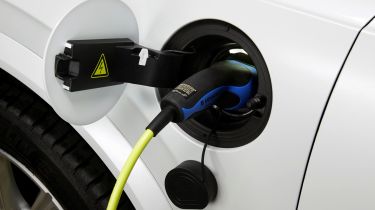
There aren't many reasons to choose a petrol or diesel car over an electric model, but there's still on key advantage to the former: you can refuel them in a couple of minutes and be on your way. It's not the same story with charging electric vehicles, as even the fastest-charging models still take longer to fill than any petrol or diesel car.
Yet it's not all doom and gloom – if you're considering your first electric car soon, it's worth knowing that advances in fast and rapid-charging technology mean that topping up is quicker than ever. For example, the most powerful 350kW DC rapid chargers can provide hundreds of miles of added range in just a few minutes, so once these are commonplace, it'll be much harder to argue that a petrol or diesel is better for long trips.
Plus, most people don't even have to think about charging their car. Many owners use a home wallbox charger to fill up overnight – something you can't do without going to a petrol station in a normal car. The fact that you're asleep while it's charging means it effectively takes no time at all, since you're not waiting for it to charge.
So there are lots of factors at play when you consider how long it takes an electric car to charge. It's possible to find the charging times in a variety of situations for most electric cars using their technical details or by looking at our in-depth reviews, but for a more general view, read on below.
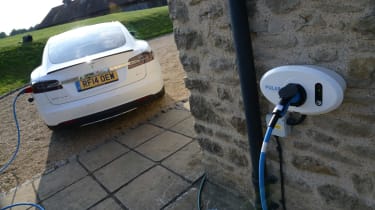
Home charging
The UK Government's 'Go Ultra Low' campaign reported that around 90% of electric cars are charged at home, so this is the key method to consider. The amount of time depends on two factors: the amount of electricity going in in a given time, and the size of the battery it's going into.
The size of an electric car battery is always measured in kWh (kilowatt-hours) – a unit of energy. Meanwhile, the charging power from a wallbox or any other charging source is listed in kW – a measure of power. A quick way to know how long it'll take to charge your electric car is to use the simple formula: total charging time = kWh ÷ kW
This means, for example, that the 35.5kWh battery in the Honda e city car will take five hours to charge fully when plugged into a 7kW supply. Standard three-pin domestic sockets can only draw up to a maximum of 3kW, so you'll need a wallbox to get to 7kW at home.
Some car manufacturers advise against using mains sockets for regular charging, as the high amperage drawn over such a long period of time can cause overheating of the socket. We recommend consulting a qualified electrician if you're likely to regularly charge your electric vehicle from a standard mains socket.
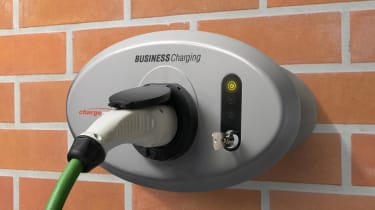
Wallbox chargers
The above is why electric-car owners often install a faster wallbox charger to speed up the process at home. These typically supply up to 7kW of power – and sometimes more (up to 11kW) if the property has a three-phase electricity supply. Most UK homes are restricted to a single-phase supply, however, and upgrading is likely to cost thousands of pounds.
It's important to note that you're unlikely to have to fully recharge you car's battery every day from zero to 100%. Much like running out of fuel completely in a petrol or diesel car, electric vehicles aren't going to completely run out of electricity if they're driven sensibly. This is why you're only ever likely to charge a battery up to 60 or 80% of its maximum capacity, based on most people's average daily mileage.
Importantly, most electric-car owners charge their car overnight when it's not being used. In this respect, you could actually save time compared to driving a petrol or diesel vehicle, as you'll rarely have to go out of your way or make a dedicated trip to your local forecourt to fuel up. This is because an overnight-charged electric car is ready to go as soon as you need it. If driven within its range, it doesn't need to be plugged in until the evening. Visiting a petrol station takes much longer than simply plugging a connector into a socket.

Public charging
Public charging stations often work much faster than the 3 or 7kW speeds available at home. As of late 2020, there are nearly 35,000 public chargers spread over 12,000 locations in the UK, meaning finding one is becoming increasingly easy. Public charging stations can be divided into two categories: fast and rapid. Fast chargers work anywhere between 7kW and 50kW, while anything above that threshold can be considered a rapid charger. Tesla's Supercharger network works at up to 120kW, with speeds of 250kW arriving in 2021. However, this network is reserved for Tesla owners.
Meanwhile, IONITY is rolling out a network of 350kW chargers across Europe, theoretically capable of delivering top-up times "as low as eight minutes". At the time of writing, only a couple of electric cars are equipped to accept that maximum charging speed, however more will arrive in the next few years.
There's no difference between a home charging unit at 7kW or a public charging unit at 7kW, so using the same 35.5kWh Nissan Leaf above, it would be fully recharged in a little over five hours. An 11kW public charger would fully recharge the car in just over three hours, while a 22kW unit would do so in less than two hours. A 100kW charger would replenish the battery from empty to 80% in just over a quarter of an hour.
When it comes to public charging stations, most people won't fully recharge an electric vehicle, but will top up just enough to make the trip home or to the next stopover. This is because rapid-chargers slow down after the battery becomes around 80% full, as it becomes more difficult to force electricity in at such a high rate. It's worth bearing in mind that not all electric cars come with the capacity for rapid charging. Some are limited to either 22kW or 7kW fast charging, so it's worth double checking this before you buy any particular model – particularly an older secondhand one.
It's also important to note which connector type your car has, as some charging stations don't support every connector type possible. Consult your vehicle brochure or handbook to find out the correct charging types and speeds for your current or potential electric vehicle purchase.
Recommended
Range anxiety: here's what happens when an electric car runs out
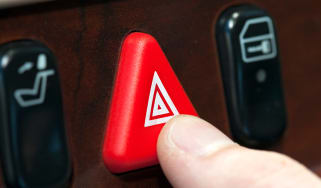
Your questions answered
Range anxiety: here's what happens when an electric car runs out
10 Nov 2021
Complete guide to the OZEV EVHS electric car home charging point grant
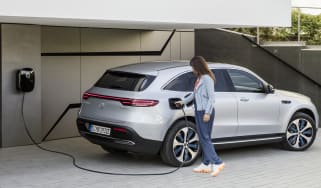
Your questions answered
Complete guide to the OZEV EVHS electric car home charging point grant
10 Nov 2021
What is fast charging? What is rapid charging? What is ultra-rapid charging? EV charging speeds explained
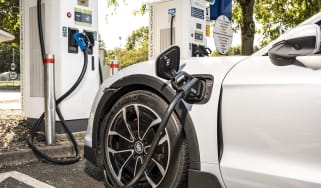
Charging
What is fast charging? What is rapid charging? What is ultra-rapid charging? EV charging speeds explained
10 Nov 2021
Complete guide to the Source London charging network
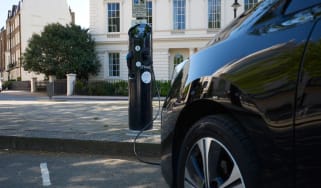
Charging
Complete guide to the Source London charging network
9 Nov 2021
Most Popular
Range anxiety: here's what happens when an electric car runs out

Your questions answered
Range anxiety: here's what happens when an electric car runs out
What is range anxiety? Here's what happens when an electric car's battery runs out – and what you should do if it happens
10 Nov 2021
New 2022 Volkswagen ID.5 and ID.5 GTX electric coupe-SUV unveiled
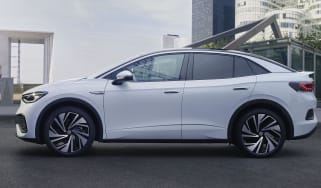
Volkswagen ID.5
New 2022 Volkswagen ID.5 and ID.5 GTX electric coupe-SUV unveiled
The coupe version of the ID.4 can cover up to 323 miles on a charge and will be available in high-performance GTX guise; prices are expected to start …
3 Nov 2021
New ORA CAT electric car: £25k hatch with 261-mile range coming to UK
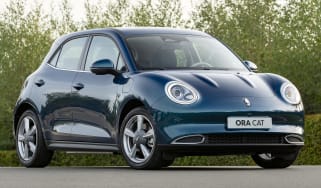
News
New ORA CAT electric car: £25k hatch with 261-mile range coming to UK
Family hatchback from Great Wall's electric sub-brand will arrive in the UK next year, with up to 261 miles of range and a starting price of around £2…
2 Nov 2021
How Long Does It Take For Iphone 11 To Charge
Source: https://www.drivingelectric.com/your-questions-answered/98/how-long-does-it-take-charge-electric-car
Posted by: savoiesendes.blogspot.com

0 Response to "How Long Does It Take For Iphone 11 To Charge"
Post a Comment